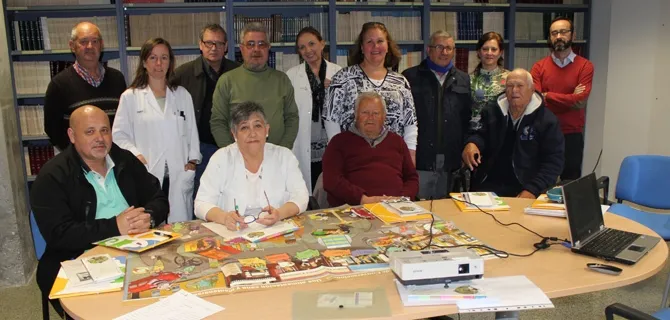The Regional Government has launched the School of Health and Care of Castilla-La Mancha with the organization of its first workshops aimed at people with type 2 diabetes and caregivers in the basic health area of Illescas, taught by an expert and coordinated patientby two primary care professionals.
The objective of this initiative promoted by the Ministry of Health, through the General Directorate of Quality and Humanization of Health Assistance, is to create a network of trainers that transmit their experiences and knowledge to other patients who have the same pathology, making possibleThus the training and involvement of people with a chronic disease and their relatives to improve their health and quality of life.
The School of Health and Care of Castilla-La Mancha is developing through two types of workshops organized in two phases.On the one hand, the courses corresponding to phase I are convened, whose duration is 20 hours distributed over three days, attended by patients from the pathology to be treated and professionals in charge of coordinating in program in their basic areas ofHealth.
This training is taught at the Institute of Health Sciences, in Talavera de la Reina, where participants from the entire region receive training related to specific notions, treatments and care, as well as communication skills when it comes to teaching the workshops.Likewise, a presentation is made about the objectives of the School of Health and Care, it is explained what the figure of the expert patient and the functioning of health care in our autonomous community consists of.
This first formative part serves as the basis for phase II, in which one of the patients who has previously participated in these courses, called 'Expert Patient', organizes a workshop with support from a healthcare professional to offer theoretical and practice training on aPathology to unchanged patients from their municipality or region, thus increasing the effectiveness of teaching and support between patients and family members.The duration of this type of courses is a total of 6 hours, distributed in four days.
The workshops that have been given throughout the month of March in Illescas are part of this second phase.They have addressed how to live with diabetes, disease management, pharmacological treatment and the importance of maintaining healthy habits.These workshops have been taught by an expert patient from Illescas and coordinated by a nurse from this basic health area and the Regional Coordinator of the School of Health and Patients and Family Medical of Illescas, Mª Jesús Martínez.
Training workshops
Throughout the year, training workshops in various pathologies and their extension to different health areas of the region are planned, thus creating a network of training spaces.
In principle, in the month of April the workshops related to breast cancer and throughout the year will be developed, the workshops for attention deficit and hyperactivity deficit, COPD, nutrition and prevention of obesity, as well as aClassroom related to rare diseases.
Network of experts and professionals in health education and patient schools
The School of Health and Care, together with the Dignifica Plan and the networks of experts and professionals, are part of the humanization plan of the Government of Castilla-La Mancha and suppose a change in the management model, offering professionals and patients the opportunity ofParticipate in decision -making based on knowledge and personal experience.
Last September, the Government of Castilla-La Mancha constituted the Consultative Committee of the Network ofExperts and professionals in health education and patient schools.The objective is to promote citizen participation, facilitating and promoting the involvement and co -responsibility of citizens, professionals and associations of patients in health policies that are developed from the regional government.
In this network, the involvement of chronic patients, involved to collaborate in the design and implementation of healthcare policies and health programs in Castilla-La Mancha, becoming a special importance, thus becoming fundamental actors when assessing and improving carethat lends itself.


